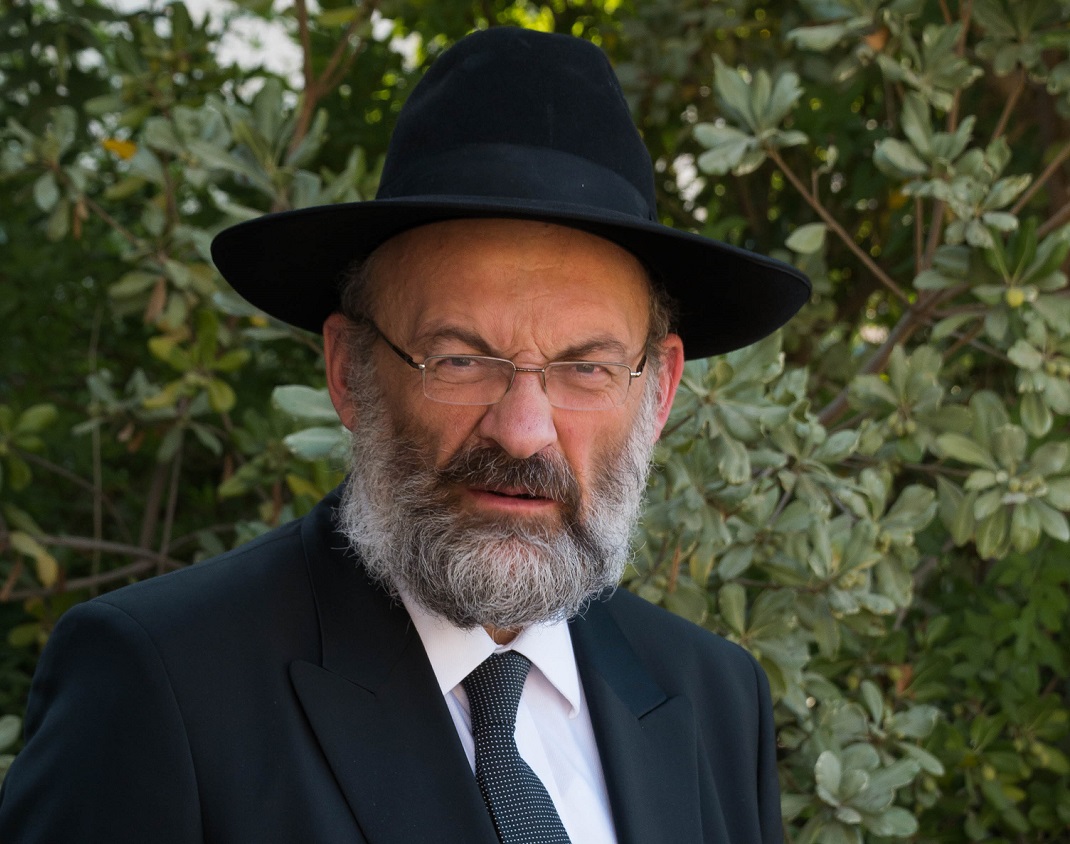Your Will Is My Command

Interpersonal mitzvos are much more profound, and more demanding, than we think
Prepared for print by Rabbi Eran Feintuch
D
uring the days of Sefiras Ha’omer, we mourn the deaths of Rabi Akiva’s 24,000 students who passed away during this period. The Gemara says these students were punished for not treating one another with the honor they deserved. Appropriately, during this period many of us try to improve in the area of mitzvos bein adam l’chaveiro.
How do we work on that? We think it’s simple, though not always easy. Smile, help out, be considerate… in other words, be a mensch. But the truth is that interpersonal mitzvos are much more profound, and more demanding, than we think.
Every morning after birchos haTorah, we learn about the mitzvos “for which one enjoys the fruits in This World, while the principal reward remains intact in the World to Come.” Interestingly, the Rosh notes that most of these mitzvos are bein adam l’chaveiro, while only a few are bein adam l’Makom. Why is that?
Explains the Rosh: Hashem is more interested in bein adam l’chaveiro, because these mitzvos require doing the will of other people as well as His own.
Hashem is more interested in bein adam l’chaveiro! When we imagine someone who really cares about doing Hashem’s Will, we think of someone who’s extremely meticulous in kashrus, Shabbos, and brachos. After all, mitzvos bein adam l’Makom are the ones that concern our relationship with Hashem.
But, says the Rosh, Hashem’s highest will is bein adam l’chaveiro. That doesn’t mean these mitzvos are more important, or more severely judged. But they are especially dear to Hashem. We should make our bein adam l’chaveiro a major area of focus, not just during Sefiras Ha’omer.
If we pay close attention to the words of the Rosh, we’ll see he’s teaching us not only how important the mitzvos of bein adam l’chaveiro are, but also how we should approach them. Why is bein adam l’chaveiro so important to Hashem? Because the fulfillment of these mitzvos involves doing our fellow’s will in addition to Hashem’s.
If you think about it, this statement is shocking. How can you even mention Hashem’s Will and your friend’s will in the same breath? It’s like saying: I hereby do this, because Hashem, King of Kings, told me to do it — as well as my high school English teacher.
Of course Hashem’s Will is paramount. The Rosh isn’t coming to equate our friend’s will with Hashem’s. He’s teaching us that Hashem’s Will is for us to fulfill our friend’s will. Every mitzvah is Hashem’s Will for us, not just a law. Hashem wants us to keep Shabbos, shake the lulav, and eat matzah. In the mitzvos of bein adam l’chaveiro, our friend’s will obligates us in the same manner Hashem’s Will does in every mitzvah!
No, that doesn’t mean we’re the other person’s slave. We don’t have to follow his commands. What we have to do is take his will seriously, just as we regard Hashem’s Will.
To do that, we need to know what our friend wants, not just what he ostensibly demands. In mitzvos bein adam l’chaveiro, our friend’s will is our Shulchan Aruch. We need to study it, just as we study Hashem’s Will in every mitzvah.
We spend countless hours trying to figure out Hashem’s Will in a single mitzvah. Hashem says to sit in a succah — we spend months figuring out how to build a succah in the optimal halachic way. We pore over the Mishnah, Gemara, Rishonim, Acharonim, Tur, Shulchan Aruch, nosei keilim, Mishnah Berurah… all to figure out exactly what Hashem wants from us.
When it comes to bein adam l’Makom, we’re most punctilious. But how much effort do we make to figure out what our friend wants from us? Most of the time, we just try to satisfy him and get him off our back. We have to put at least as much work, if not more, into figuring out our friend’s will as we do Hashem’s.
Very often, our friend doesn’t articulate precisely what he really needs from us. He might ask for our advice, but really he’s looking for encouragement. He might ask for help with his problems, but what he really needs is to be listened to. He might ask us one question, but he’s really looking for an answer to a different question altogether.
A couple sought my counsel about a terrible health crisis in their family. I thought they wanted chizuk in emunah. They listened to my words and thanked me for the chizuk, but I could see in their eyes they weren’t satisfied. I understood they’d really come for something else.
It took time, but eventually I discovered the big question they hadn’t managed to formulate. How remiss I would have been to send them off without dealing with that question!
There are no shortcuts to determining our friend’s will. There’s no Mishnah Berurah, no Shulchan Aruch; we have to figure it out ourselves. We won’t always get it right, but we have to try, to approach our friend’s will the same way we approach Hashem’s. Pay close attention, think hard, and make it your business to find out what he really wants.
At home, more than anywhere else, we make little effort to figure out what the other person wants from us. So many problems in shalom bayis and parenting could be solved, so many fractured homes could be healed, if people approached their spouses and children the way they approach building a succah.
I know couples who are on good terms, but they’re like chavrusas learning different masechtos. They don’t hear what their spouses are actually saying, or understand what they really want.
This avodah isn’t limited to the times when the other person approaches us. Say you come home and tell your husband about something that’s on your mind, and he’s not interested. You immediately get offended.
But did you try to figure out why he’s not interested? Maybe he’s in a foul mood because he had a bad day? Maybe he’s not interested in this topic; maybe he’s preoccupied or under pressure. There are so many avenues to explore — if we approach the other person’s will as we approach Hashem’s.
You don’t need to be a psychologist. Just listen and think. Put yourself in the other person’s shoes, and try to understand what he wants from you. Work on this with your spouse, your children, your friends and coworkers. You’ll improve your relationships and make surprising discoveries about the people you thought you knew.
Let’s make it our business to figure out what other people want from us. That’s the key to bein adam l’chaveiro, and the way to make our mitzvos dear to Hashem. Because ultimately that’s what He really wants.
(Originally featured in Mishpacha, Issue 958)
Oops! We could not locate your form.







